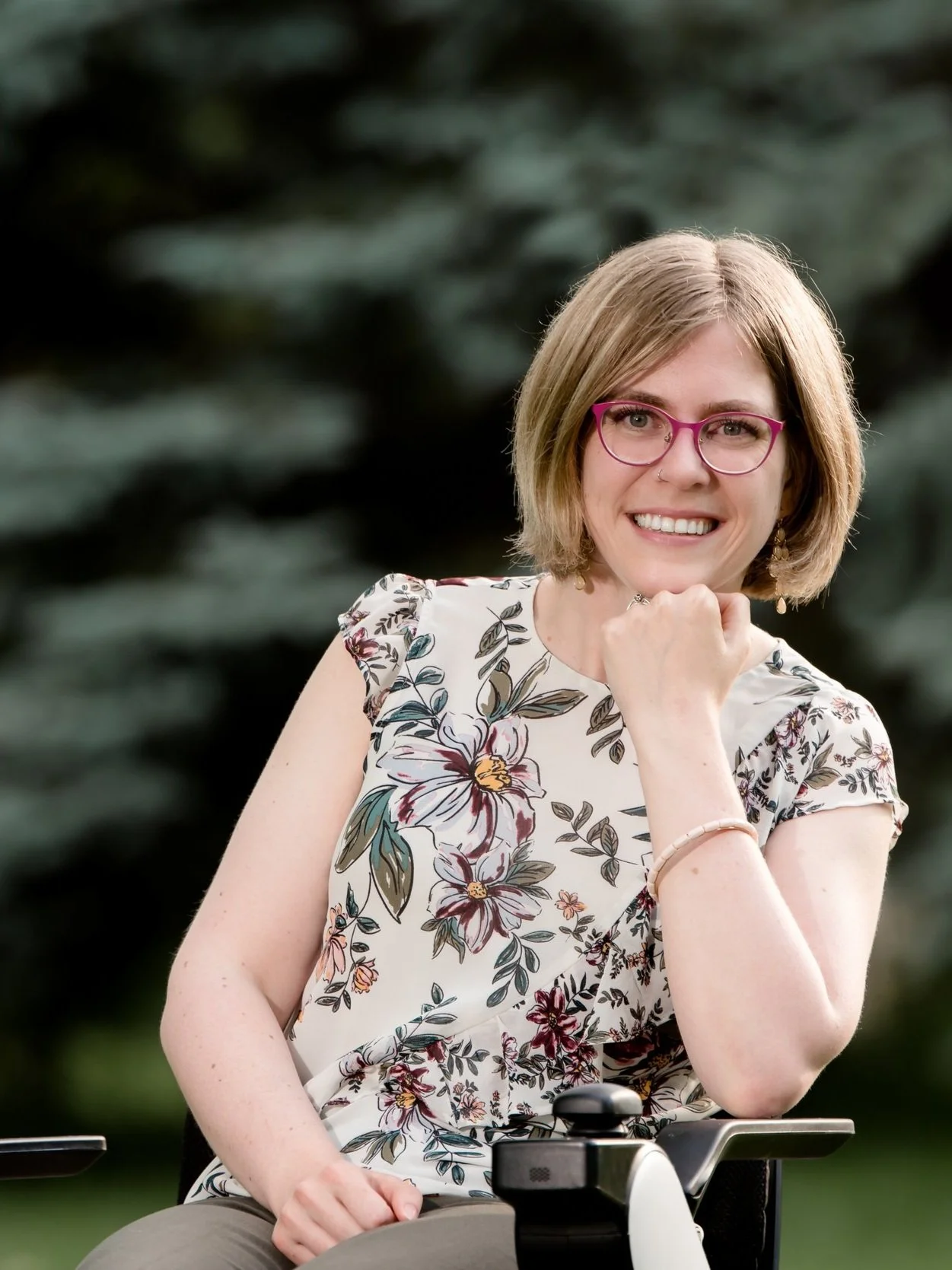My Ever-Changing Relationship with Disability Pride
By: Erica Carson-Sami
July is Disability Pride Month! But in a world that still largely sees disability as a problem that requires a solution, it’s no wonder the concept of disability pride is so often misunderstood.
For much of my life, until I finally embraced my disability wholeheartedly, I lived with a lot of shame and spent many nights wishing I would wake up “normal”. I had completely internalized the ableism that continues to be so rampant in society – I thought I was deeply flawed and that if I wanted any chance of a good life, I would need to “overcome” my disability.
I was wrong.
When I first came across the concept of disability pride in my early 20s, it changed everything. I finally had something telling me that I wasn’t broken, that I didn’t need fixing, and that there were people who weren’t family (and “biologically required” to love me) who could love me. I felt hopeful. Sounds dramatic, right? Maybe it was, but it was how I felt. To say that the internalized ableism I felt my whole life just disappeared because of disability pride would be a lie, and to be honest I’m not sure that it will ever go away. But I do know that disability pride was a lifeline for me. I began to see my disability as a source of strength - it is the reason I see the world differently; it is why I think critically, it is the reason I am good at solving problems, and it is why I am a more compassionate person.
Other things opened me up to the possibility of being proud of my disability, but disability pride changed my perspective and changed how I saw myself. It allowed me to see beauty, art, and human potential where I hadn’t seen it before. My first time at the Society for Disability Studies Conference, an international event that brings academics in this discipline together to share and innovate, I saw a room of nearly 400 disabled people, and I was stunned. It was my first time seeing that many disabled people in one room, and they were being unapologetically themselves. They wouldn’t have dared to shrink themselves down to accommodate the comfort of non-disabled people, the way I had for many years before this. I was overwhelmed by the beauty in that room - a room full of incredibly intelligent people, innovative devices, and really smart service animals.
During this time, my understanding of disability pride was entirely black-and-white - you either had pride or you didn't. In my mind, pride could change the lives of every person with a disability if they just embraced it. I would soon learn that this was based on a very privileged and naïve worldview.
Funny enough, I can pinpoint the exact moment when the concept of disability pride became a little greyer for me. During my so-called black-and-white phase, I was living at home with my family, and they could easily do things that were harder for me, such as putting out the garbage and recycling, folding laundry, and cooking. To be clear, there is NO SHAME in needing support with these things - but, society has conditioned us to value high levels of independence that many people can’t achieve (myself included). I had taken my family’s support for granted, not realizing that once I lived on my own, I’d have to figure out a way to do these everyday tasks. And so, when the time came to live on my own, doing these tasks independently was not only difficult but often exhausting, and honestly, sometimes a little dangerous. That’s when the self-doubt began to infiltrate (what I once thought) the impenetrable walls of my disability pride.
Over time, as I have aged, my body has become something I no longer recognize, and as it continues to change, so does my relationship with disability. It's challenging when you lose the ability to do something you love, or have to learn to manage with new aches and pains. Despite all of this, in moments like this, I still try to hold onto my pride. It's not always easy - how can I be angry at my body for what it’s putting me through, but also maintain my pride? Unfortunately, I rarely (if ever) have a nice and tidy answer. What I do know is that pride and discomfort can coexist and that they shift over time, in a constant pull and push against each other. And that’s okay.
Many of the bonds I’ve formed with others in the disability community are incredibly important to me and have taught me a great deal, even with those I’ve only met a few times. We’ve bonded through shared experiences of joy, culture, and even trauma. I will always be proud to be a member of such a beautiful community, which continuously shows up and fights for what is right, and knows what to say when you’re dealing with something difficult - a new symptom, an injury, or yet another encounter with ableism.
So, Happy Disability Pride Month: embrace the grey areas, the tug-of-wars, and the murky waters! Joy doesn't have to diminish the struggle - instead, it can be a source of pride.
For more information about Erica’s services, please check out her bio below, or visit her website at www.carcodisability.ca.
Header image on main blog page of young man in a manual wheelchair in front of the Aberdeen Pavilion in Ottawa, by Alana Winchester Photography
Erica Carson-Sami is the Founder and Disability Inclusion Strategist at CARCO Disability Strategies. She identifies as a disabled person and proud member of the disability community. Erica has a Master’s of Social Work and Bachelor’s degree in Women’s and Gender Studies.
Recently, Erica was the Course Instructor of a fourth-year undergraduate course entitled Social Work and Disabled People for three fall terms at Carleton University. During that time, she was also a Policy Analyst at Accessibility Standards Canada. Prior to that, Erica was an R&D Officer for the David C. Onley Initiative aimed at improving employment outcomes for disabled students. Erica was a Program Facilitator at Pinecrest-Queensway Employment Services where she ran a program for adults with disabilities who experienced barriers entering the workforce.
Erica has led workshops and participated in panel discussions for organizations such as the International Monetary Fund (IMF), Community Health Centres, and departments within the Government of Canada. These engagements were geared toward helping these organizations understand how they can incorporate more accessible and disability-friendly hiring practices and how to lead and retain talented employees with disabilities. She was also the Chair of the Ottawa Independent Living Resource Centre from 2018 to 2019.
Erica has also done volunteer work to develop content and training materials related to supporting patients with disabilities, as well as coaching students in health-related studies to better understand the realities of people with disabilities.


